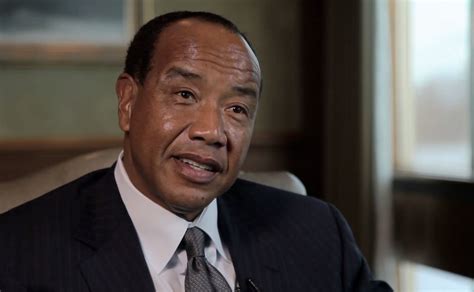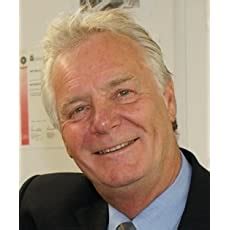A Quote by Mohnish Pabrai
The essence of a good investment manager is one who studies a given business and extrapolates the future cash flows that the business is likely to generate over the next several years. Based on the cash flow and asset assessment, they can then arrive at their expected rate of return if they bought a fraction of that business at a given price.
Related Quotes
You can't do business with a man who doesn't know the meaning of a contract. You can't do business with a firm who swears they'll do one thing one day and does just the opposite the next. You can't do business with a company who takes your goods on a cash basis and then pays you off in bum harmonicas.
If you own a wonderful business...the best thing to do is keep it. All you're going to do is trade your wonderful business for a whole bunch of cash, which isn't as good as the business, and you got the problem of investing in other businesses, and you probably paid a tax in between. So my advice to anybody who owns a wonderful business is keep it.
Fun is at the core of the way I like to do business and it has been key to everything I've done from the outset. More than any other element, fun is the secret of Virgin's success. I am aware that the ideas of business as being fun and creative goes right against the grain of convention, and it's certainly not how the they teach it at some of those business schools, where business means hard grind and lots of 'discounted cash flows' and net' present values'.
The major changes that will be occurring within the new merged partnership are exciting in many ways. First, we will have the highest forecast distribution growth rate of any of the major MLPs. Second, our coverage will be above average for the same peer group with expected $1.1 billion of excess cash flow coverage through 2017 and the Access cash flows, along with our major new fee based projects continue to dramatically reduce exposure to commodity prices.
Over the long term, it's hard for a stock to earn a much better return that the business which underlies it earns. If the business earns six percent on capital over forty years and you hold it for that forty years, you're not going to make much different than a six percent return - even if you originally buy it at a huge discount. Conversely, if a business earns eighteen percent on capital over twenty or thirty years, even if you pay an expensive looking price, you'll end up with one hell of a result.
Intrinsic value can be defined simply: It is the discounted value of the cash that can be taken out of a business during its remaining life. The calculation of intrinsic value, though, is not so simple. As our definition suggests, intrinsic value is an estimate rather than a precise figure, and it is additionally an estimate that must be changed if interest rates move or forecasts of future cash flows are revised.




























